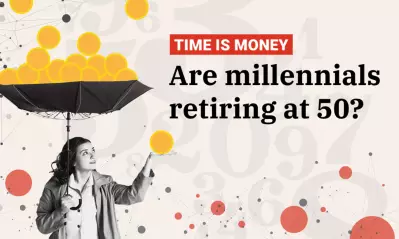The mentorship mandate

Written by Elizabeth Exline

Most people have a general idea of what mentorship is, but according to theÃ˝2023 Career Optimism Index, not a lot of people have a mentor. In fact, less than half of surveyed American adults say they have a mentor.
So, if everyone agrees it‚Äôs helpful,Ã˝why is mentorship so hard to come by?
Here, we look at what mentorship means, why it’s important and how you can cultivate it in your career, no matter which side of the relationship you’re on.
What is mentorship?
To understand what mentorship is, look back toÃ˝:Ã˝The Odyssey. In Homer‚Äôs epic poem, Odysseus entrusts the care and education of his son, Telemachus, to Mentor, Odysseus‚Äô friend, while Odysseus is away.
Although that relationship had its ups and downs, mentoring today is viewed largely as a good thing. The goal is generally to transfer wisdom, guidance and information from an experienced person to a less experienced person, all with an eye toward developing the novice‚ÄôsÃ˝personal and professional growth.
According toÃ˝, mentorship serves two primary purposes:
1.Ã˝Ã˝Ã˝ Psychosocial support: The mentor helps role model and guide the mentee in terms of values, behavior and attitudes.
2.Ã˝Ã˝Ã˝ Career support: The mentor guides the mentee in skill development, career choices and evenÃ˝workplace visibility, all while holding the mentee accountable in terms of decisions and progress.
Yes, it can be uncomfortable to beÃ˝held accountableÃ˝by someone else, and yes, it can beÃ˝time-consumingÃ˝to invest yourself in another person‚Äôs progress. But the benefits, as it turns out, justify the investment.Ã˝Ã˝
Benefits of mentorship
Mentorship seems tailored to help newer employees step onto the fast-track to professional success, and there is an element of truth to this.Ã˝, mentees areÃ˝promoted five times more oftenÃ˝than individuals without mentors.
But mentors stand to benefit too. Also, according to Guider, mentors are six times more likely to be promoted.
To all this,Ã˝∆þ…´ ”∆µ Research ChairÃ˝Kimberly Underwood, PhD, MBA, adds: ‚ÄúMany mistakenly believe that mentorship only benefits the mentee. However, in successful mentoring relationships, both the mentor and mentee have an opportunity to learn and professionally develop. ‚Ķ There are opportunities to revisit current knowledge as well asÃ˝develop new knowledgeÃ˝that benefits the mentee. This situation also allows for the continued development of valuable workplace skills, such as effective communication, emotional intelligence and leadership skills.‚Äù
This reciprocal relationship underscores another interesting point:Ã˝You can be both a mentor and a mentee simultaneously. Not only can you expand your own professional knowledge, but you can learn to become a truly effective mentor as well.
“Understanding the mentoring process through the lens of a mentee makes one a highly desirable mentor as they can understand both sides of the mentoring process,” Underwood explains.
Challenges of mentorship
While mentorship offers plenty of advantages, it‚Äôs also surprisingly hard to come by.Ã˝According to the 2023 Career Optimism Index:
- 56% of American workers don’t have a mentor.
- 19% of those without a mentor say the lack of one has held them back in their careers.
- 42% of workers say they don’t have someone who can advocate for them.
- More than 60% of employees with a mentor found them independently or carried them over from a prior position.
- 23% of mentees met their mentors through a workplace mentorship program.
- 70% of employers say they have a mentorship program or promise one is coming, but only 43% of employees agree with their employers on that point.
Of course, these statistics don‚Äôt hit the same across demographics. As the Career Optimism Index notes, the lack of mentorship is moreÃ˝prevalent among older employeesÃ˝and those workers from lower socioeconomic backgrounds.
Underwood also points to the special circumstances surrounding BIPOC employees. ‚ÄúTheÃ˝voices of BIPOC are notably absentÃ˝in the development of [mentorship initiatives],‚Äù she says. ‚ÄúViewing mentoring programs through the voices of all within an organization can provide valuable perspectives that create positive mentoring opportunities for all.‚ÄùÃ˝Ã˝
As a result, Underwood advocates for encouraging a clear understanding of the role implicit and explicit biases might play in the development and execution of workplace mentorship initiatives.
Performance evaluationsÃ˝of mentors andÃ˝assessmentsÃ˝of program effectiveness are two other ways to encourage positive and productive mentorship.
How to find a mentor
Jane Austen famously referred to truths “universally acknowledged” with regard to matrimony. When it comes to mentorship, Underwood might contend the only universal truth is that no two mentor–mentee relationships are alike.
The cadence of meeting, for example, “is defined through the expectations of the mentor and mentee as they establish the purpose and boundaries within their unique mentoring situation,” Underwood says.
The same goes for results. What a mentee hopes to accomplish and what a mentor hopes to share are entirely individual. That‚Äôs why, as a mentee, it‚Äôs important to have aÃ˝clear idea of what you‚Äôd want to gain or accomplishÃ˝by having a mentor. Do you want to move to the next level in your career? Switch careers? Find the best upskilling or professional development opportunity?
To understand what you hope to accomplish, Underwood recommends asking yourself the following:
- What specifically would you like to be mentored about?
- What are yourÃ˝professional goals, and how do you see a mentor helping you reach them?
- What are yourÃ˝expectationsÃ˝of your mentor? Are you flexible if your mentor has different expectations?
- Are you committed toÃ˝honest conversationsÃ˝and feedback?
Once you know what you hope to gain, it’s time to find your mentor. And that can happen in several ways.
Workplace initiatives
As noted in the Career Optimism Index data points above, only 23% of respondents claimed to have acquired a mentor through a workplace mentorship program. And, while 70% of surveyed employers say they have or will start a mentorship program, less than half of surveyed workers see it that way.
Clearly, communication could be improved.
But so, arguably, couldÃ˝employer commitmentÃ˝to developing and rolling out such programs.
What‚Äôs the holdup? Well, starting such a program is a lot harder than you‚Äôd think. At ∆þ…´ ”∆µ, for example, theÃ˝College of Doctoral StudiesÃ˝launched aÃ˝pilot mentorship programÃ˝in April 2022 between doctoral students and alumni. Sixty-two relationships were formed, and it was successful enough to be turned into an official program a year later.
But the undertaking was significant.Ã˝Matching peopleÃ˝is one thing; getting the right people to join as both mentees and mentors is another. All of these aspects require facilitators who are experienced and knowledgeable enough to do it well.
If you want it done right …
Then do it yourself?
There may be some truth to this adage. As Underwood notes, “Barriers, such as mismatched expectations between a mentor and mentee, lack of time to commit to the mentoring process and implicit biases, can easily derail a workplace mentorship match.”
When you find your own mentor — and you are clear about what you want to achieve in doing so — you may have a better shot at getting that productive relationship.
So, where do you find a good mentor? Underwood explains:
1.Ã˝Ã˝Ã˝ Do your research: Mentors exist both in and out of the office. ‚ÄúEvaluate your existing personal and professional circles to identify individuals who could serve as good mentors.‚Äù
2.Ã˝Ã˝Ã˝ Make a short list and review their professional backgrounds: An online search is ideal to understand where your potential mentor or mentors have been and what they have accomplished professionally. This will help you identify the best fit for your goals.Ã˝Ã˝
3.Ã˝Ã˝Ã˝ Communicate clearly: ‚ÄúA clear ‚Äòask‚Äô is important in this process,‚Äù Underwood says. Before you sit down with a prospective mentor, make sure you know what you hope to gain and how your mentor can help you get there.
While mentorship can feel like a serious and lasting commitment, the relationship doesn’t have to be long term. “Not all mentoring relationships are lifelong,” Underwood says. “Closing a mentoring relationship does not signify failure, as they often lead to long-standing professional relationships. It simply means that one is progressing in their career.”
Done right, mentorship can benefit both the mentor and the mentee in ways that are more than just professional. “Successful mentoring relationships are built through HEART: honesty, enthusiasm, accountability, respect and trust,” Underwood says.
Like a good marriage, in other words, a good mentor–mentee relationship helps both people grow in manifold — and maybe even unpredictable — ways.

ABOUT THE AUTHOR
Elizabeth Exline has been telling stories ever since she won a writing contest in third grade. She's covered design and architecture, travel, lifestyle content and a host of other topics for national, regional, local and brand publications. Additionally, she's worked in content development for Marriott International and manuscript development for a variety of authors.
This article has been vetted by ∆þ…´ ”∆µ's editorial advisory committee.Ã˝
Read more about our editorial process.
Read more articles like this:


